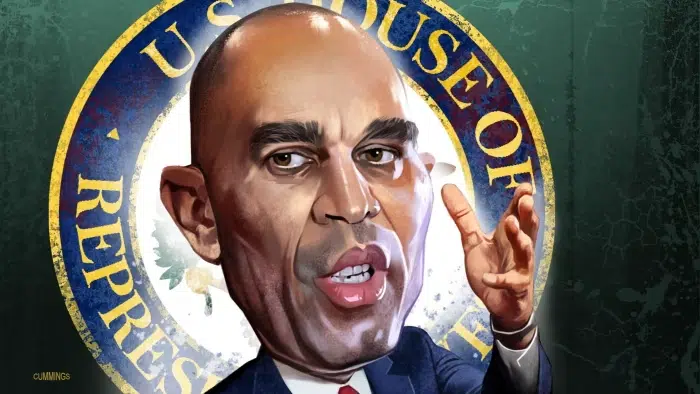
Criticism Aimed at Biden Administration’s New Speech ‘Framework’ for Agency Scientists
The basis of science, or, more specifically, the scientific method, is an approach of objective inquiry, of establishing facts through testing and experimentation, according to TechTarget, a data-driven marketing outfit that caters to the technology sector.
“The basic process involves making an observation, forming a hypothesis, making a prediction, conducting an experiment and finally analyzing the results,” explains the company’s website, a method that “can be applied in many areas, including scientific research, business and technology.”
That take on science is apparently news to the Biden administration, which is facing mounting criticism for its recently-unveiled “Framework for Federal Scientific Integrity Policy and Practice,” a set of communication guidelines for federal scientists that critics say is intended to shut down free speech.
The proposed policy includes language that would ban scientists from speaking without prior approval — and even then only on specific topics.
“This policy is problematic in many ways,” Glen Nowak, former spokesman for the Centers for Disease Control and Prevention, told the Washington Examiner. “This could become a major impediment to being able to communicate science, which is not just about findings but what those findings suggest and what they mean.”
The policy subsection “Ensuring the Free Flow of Scientific Information” details under which circumstances scientists would be allowed to speak.
Agency scientists “shall refrain from making or publishing statements that could be construed as being judgments of, or recommendations on, [an agency] or any other federal government policy, unless they have secured appropriate prior approval to do so,” the policy text reads. “Such communications shall remain within the bounds of their scientific or technological findings, unless specifically otherwise authorized.”
Now a professor at the University of Georgia, Nowak further explains transparency among government scientists is especially important — because they’re paid with taxpayer dollars. He argues nothing good can come from a policy like Biden’s Framework, only bad.
Nowak’s concerns are echoed by the nonprofit Public Employees for Environmental Responsibility, which released a letter outlining a list of misgivings prompted by the White House’s Office of Science and Technology Policy.
“OSTP claims that it seeks to promote a free and open exchange of scientific information,” the letter reads. “Yet, this poorly worded, overly broad provision clearly does the opposite.”
An OSTP spokesperson quickly responded that accusations of gagging scientific dialogue are false.
“There is no gag rule,” an unnamed agency representative was quoted saying by the Examiner. “In fact, OSTP is working with federal departments and agencies to ensure that federal scientific integrity policies and practices support scientific communication with the media and the public, including the timely release of scientific information. The OSTP Scientific Integrity Framework lays out a pathway for all federal agencies to do just that by strengthening their scientific integrity policies and practices, and run thorough and responsible internal processes, to ensure that scientific information communicated to the public is always reliable—including ensuring that federal scientists can fully participate and communicate scientific information, free of interference.”
The new policy for scientists is similar to communication guidelines implemented by the Obama administration — and which currently exist within other federal agencies like the Department of Agriculture.
“What makes for scientific progress is the ability of people to feel comfortable disagreeing with the precepts behind any particular research project,” said Jeff Singer, a surgeon, and Cato Institute fellow. “You can’t reach the truth if people are not allowed to speak out critically.”
Singer told the Examiner that most voters are probably unaware of such speech controls and likely wouldn’t be happy if they found out about them.
“I think most Americans would be alarmed to know this and would be very upset about it,” he said. “We’re supposed to be a free and open society.
“Not only is it an injustice to the public who is funding the work,” Singer added, “it does an injustice to science.”



